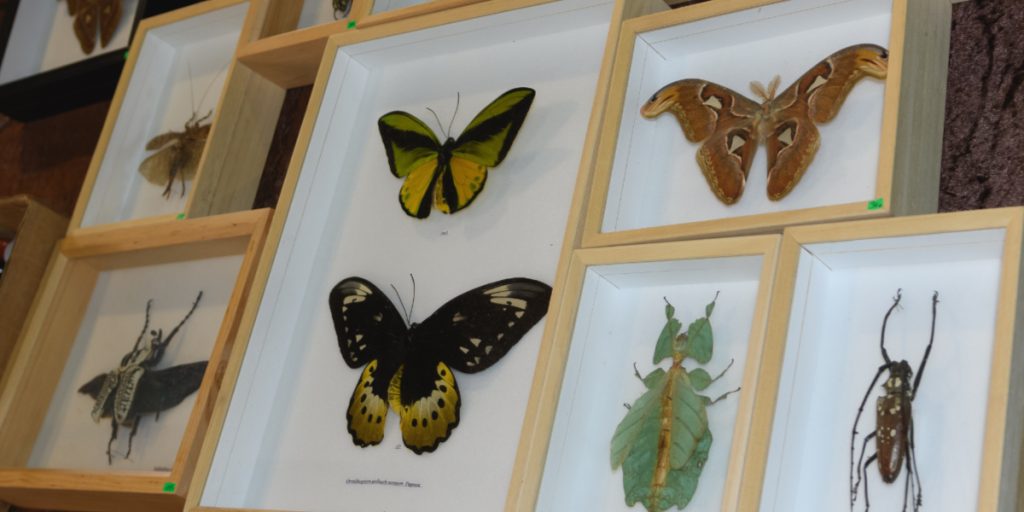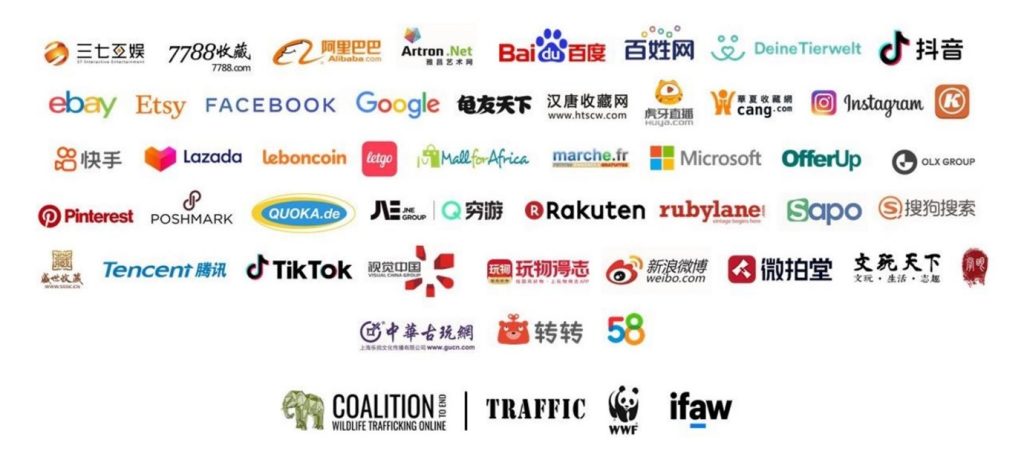Another Voluntary Scheme? Sign Me Up!

The use of multi-stakeholder initiatives (MSIs) and certification schemes has been a staple of the phantom solutions that business will readily commit to, as they are always voluntary and always designed in such a way that the actual impact on the business of trading in biodiversity remains negligible.
Corporations can decide not only on the terms of their commitment, but also the terms of verification and enforcement (although most of the MSIs and certification schemes do not include any enforcement provisions). The simplest way of making sure the commitments as part of a MSI or certification scheme remain inconsequential is to either not have any verification, or to hand it to a ‘friendly’ third party.
For the wildlife trade, the online trade in illegally obtained animals and animal products has been a major concern for conservation agencies since the advent of eBay and the situation became even worse in the Facebook and Etsy era. For over a decade there has been numerous research hours monitoring and providing ample proof of the scale of wildlife trafficking on social media and eCommerce sites
In one example of just how easy it is to buy endangered species illegally online, VICE World News’ own investigation found it took them less than 24 hours to order an endangered tiger on Facebook. And it isn’t only Facebook, as it isn’t hard to find images or videos of this trade on TikTok, Instagram and Etsy.
Etsy for example provided a platform for a growing number of interior designers, who have added taxidermy and insect collections to their portfolio. While few customers can afford the ostentatious end of this macabre styling trend, many turn to Esty where you can find an assortment of endangered and exotic species, from bats to birds, butterflies and bugs.
Research by scientists from the University of Adelaide found 32 species of bat for sale on Etsy, including those listed threatened or critically threatened. “I was surprised by the volume of bats, the species available,” says Dr Anne-Lise Chaber, a lead author of the study [191].
Similarly concerning are examples such as the Queen Victoria’s birdwing butterfly only found in the Solomon Islands and Papua New Guinea (Bougainville Island only). Regarding the trade in this butterfly, the Solomon Islands was placed under CITES trade sanctions in 1995. After nearly 30 years these sanctions have still not been lifted, meaning that the Solomon Islands hasn’t met the conditions set out by the CITES standing committee to allow the resumption of trade.
Yet this rare species can be found for sale on Esty for several hundred dollars, either mounted in a frame or under a glass jar. Given the international regulator of this trade is impoverished to the point of being useless, any CITES permit paperwork associated with this trade is effectively meaningless until CITES is modernised. So, who should be sanctioned, countries, businesses or both?
The industry response has been another MSI – the Coalition to End Wildlife Trafficking Online. Launched in 2018, it was convened by three conservation organisations: WWF, TRAFFIC and IFAW. The group includes Facebook (Meta), Google, eBay, Etsy, Instagram, Microsoft, TikTok, Alibaba and many more.

Early after its launch, the coalition stated its goal was to cut the illegal online trade by 80% by 2020. Their 2021 progress report states that, as a group, they removed 11 million posts and listings of illegal wildlife for sale but did not say what percentage of the total illegal online trade that amounts to. In fact there is zero information on how these measures are in any way connected to the stated objective of “cutting the illegal online trade by 80%”.
There are countless more examples on the relative uselessness of MSIs and voluntary certification schemes. In a comprehensive study of MSIs created to address human rights abuses in business supply chains MSI Integrity found “MSIs are not effective tools for holding corporations accountable for abuses, protecting rights holders against human rights violations, or providing survivors and victims with access to remedy…They are simply not fit for this purpose.”.
The reason should be obvious, as MSI Integrity equally highlights, “MSIs have not fundamentally restricted corporate power or addressed the power imbalances that drive abuse. Companies have preserved their autonomy and safeguarded their interests throughout the design, governance, and implementation of MSIs.”.
Conservationists, who are mostly scientists, never talk about power imbalance. They ignore power, and they fail to see it as a major driver in society and human affairs. One of the easiest ways to ignore the imbalance of power is to clinically sidestep anything to do with legal trade and focus on illegal trafficking.
A handful of people in the conservation sector have begun to acknowledge that conservation NGOs are at risk given their lack of commercial sophistication, which is allowing global management consultants to rapidly become seen as the saviour on environmental matters; one of the extremely worrying trends of the post-pandemic era.
As a result of global management consultants entering the conservation space, global conservation NGOs seem to have dug in on their belief that their certification schemes and appeals to self-regulation by business are ‘doing good’. This belief is genuine and maintained by confirmation bias, that is by only looking for evidence that supports the belief. How far this confirmation bias goes is evidenced by the utter lack of rigorous studies into the effectiveness of certification schemes.
These phantom solutions mean business gets to look good, the corporate NGOs gets to feel good, and the unsustainable practices are perhaps slightly less unsustainable, but of course remain unsustainable.
To read more on this, go to The Business of Nature Report

Lynn Johnson is a physicist by education and has worked as an executive coach and a strategy consultant for over 20 years. In her work she pushes for systemic change, not piecemeal solutions, this includes campaigning for modernising the legal trade in endangered species, to help tackle the illegal wildlife trade.





